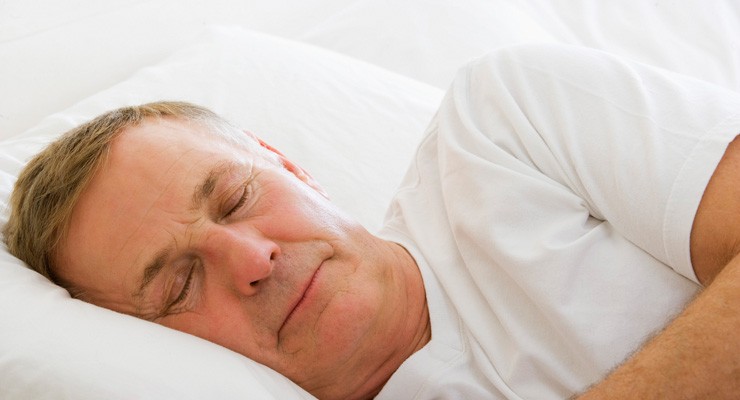Tips for a Good Night’s Sleep
Try these strategies for better sleep and a healthier you.

Everyone enjoys getting a good night’s sleep. It’s rest after a long day, a cozy space to dream and a fresh start for your next morning. Beyond how it makes you feel, quality sleep is important for your health.
Why sleep matters
While you sleep, your brain forms pathways for learning and memory. Sleep strengthens your heart and blood vessels. And it helps your immune system fight off infections. On the other hand, a consistent lack of sleep can raise your risk of high blood pressure, diabetes and heart disease. And it can contribute to being overweight or obese.
What is “quality sleep?”
Quality sleep means getting consistent, uninterrupted sleep for an amount of time each night that’s right for you. The amount of sleep you need varies for each person and changes throughout your life. There is no magic number, but the American Academy of Sleep Medicine (AASM) recommends 7-8 hours of sleep per day for the average adult.
Sometimes quality sleep can be hard to get. If you’re not getting enough sleep, have a hard time falling asleep, have restless nights or are overly tired during the day, there are some things you can do to try and improve your sleep quality.
What you can do today
Here are some simple things you can try starting today. Pick something you feel confident doing that you may not be doing already and give it a shot:
- Make time. Decide what time you need to wake up and then figure out a target bedtime that allows you to get the amount of sleep you need. But make small adjustments. If you change your bedtime by more than an hour or two at once, you may throw off your body’s schedule and have trouble falling asleep.
- Cut down on caffeine. Limit food or drink with caffeine after late afternoon. Read labels carefully. Some medicines contain caffeine, too.
- Avoid alcohol before bed. Alcohol may feel relaxing, and some people use it to help fall asleep. But alcohol interferes with your sleep quality. If you’re used to a nightcap before bed, try replacing it with a soothing drink that’s nonalcoholic and caffeine-free. For example, have a glass of milk or a cup of herbal tea.
- Avoid naps late in the day. If you really need to catch a few winks, do it early in the afternoon, and don't sleep for more than 20 minutes. Taking too long of a nap or napping too late in the day may throw off your sleep later on.
- Put away your devices. Give yourself 30-60 minutes before bed without electronic devices. Staring at your cellphone, tablet, tv, or laptop can stimulate your mind when it should be winding down. Also, light from these devices may decrease your melatonin – a hormone that helps you feel tired and ready for sleep. Instead, try reading a book or listening to a podcast before bed.
- Don’t just lie there. If you’re having trouble falling asleep, don’t just lie awake in bed. If 20 minutes goes by and you can’t fall asleep, get out of bed. Do something quiet and calming without much light. Try some light stretching or listen to music. Then go back to bed when you feel more tired.
Taking it farther
Healthy habits can promote healthy sleep. Try being consistent with any of the tips above to help create healthy sleep habits. You can also try some of these longer-term habits to improve your sleep:
- Keep a regular sleep schedule. Go to bed and get up at about the same time every day, even on weekends. Having a regular sleep schedule helps your body get into a rhythm of consistent sleep.
- Get regular exercise. Exercise is essential for good health and may help you sleep better.* Regular exercise can help decrease the time it takes to fall asleep at night. It can also help you feel less tired during the day.
- Block out light. Keep your sleeping space as dark as possible. Heavy curtains or blackout shades can keep light from coming through your windows. Or try a sleep mask to block the light.
- Quit smoking. Not only is nicotine bad for your health, it’s also a stimulant. So, it may keep you awake and cause lighter sleep overall.
Talk with your doctor if you feel like you’ve tried several strategies and are still having trouble sleeping or are very tired during the day. They’ll ask you questions about your health and sleep habits and work with you to determine if you have a sleep disorder. Most sleep disorders can be successfully treated. Your doctor can recommend the treatment that’s best for you.
*Talk with your doctor before significantly increasing your activity level. Ask about the amounts and types of activities that may be best for you.
By Kristin Nelson and Michael Phillips, Contributing Writers
Sources
National Institute of Neurological Disorders and Stroke. Brain basics: Understanding sleep. Accessed July 23, 2021.
Sleep Foundation. Exercise and Sleep. Accessed July 26, 2021.
Sleep Foundation. Sleep hygiene. Accessed July 23, 2021.
Last Updated: July 28, 2021
